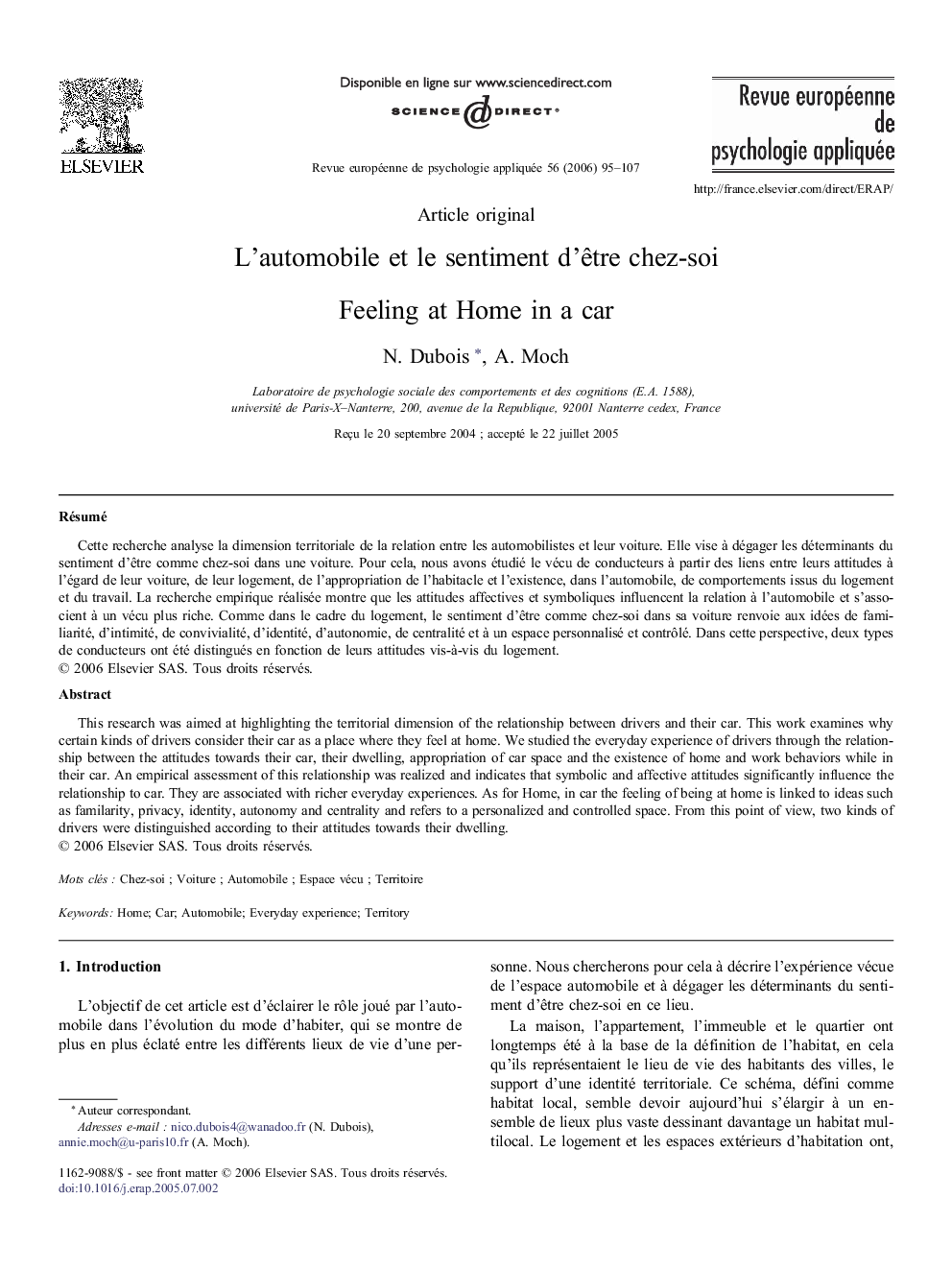| Article ID | Journal | Published Year | Pages | File Type |
|---|---|---|---|---|
| 895713 | Revue Européenne de Psychologie Appliquée/European Review of Applied Psychology | 2006 | 13 Pages |
RésuméCette recherche analyse la dimension territoriale de la relation entre les automobilistes et leur voiture. Elle vise à dégager les déterminants du sentiment d'être comme chez-soi dans une voiture. Pour cela, nous avons étudié le vécu de conducteurs à partir des liens entre leurs attitudes à l'égard de leur voiture, de leur logement, de l'appropriation de l'habitacle et l'existence, dans l'automobile, de comportements issus du logement et du travail. La recherche empirique réalisée montre que les attitudes affectives et symboliques influencent la relation à l'automobile et s'associent à un vécu plus riche. Comme dans le cadre du logement, le sentiment d'être comme chez-soi dans sa voiture renvoie aux idées de familiarité, d'intimité, de convivialité, d'identité, d'autonomie, de centralité et à un espace personnalisé et contrôlé. Dans cette perspective, deux types de conducteurs ont été distingués en fonction de leurs attitudes vis-à-vis du logement.
This research was aimed at highlighting the territorial dimension of the relationship between drivers and their car. This work examines why certain kinds of drivers consider their car as a place where they feel at home. We studied the everyday experience of drivers through the relationship between the attitudes towards their car, their dwelling, appropriation of car space and the existence of home and work behaviors while in their car. An empirical assessment of this relationship was realized and indicates that symbolic and affective attitudes significantly influence the relationship to car. They are associated with richer everyday experiences. As for Home, in car the feeling of being at home is linked to ideas such as familarity, privacy, identity, autonomy and centrality and refers to a personalized and controlled space. From this point of view, two kinds of drivers were distinguished according to their attitudes towards their dwelling.
